DIY
DIY Citrus & Vinegar Cleaning Spray
Choosing the right cleaning products for your home can be kind of a chore—especially during the middle of a global pandemic. It’s normal to have questions about them, like: why are there so many kinds? What’s safest? Why are they so expensive? Are they effective?
Shopping online or in-store for all purpose cleaners can feel overwhelming, but I find one simple product to be the most effective and sustainable in-between more intensive disinfecting: white vinegar. No more fussing with an under-sink cabinet full of random and oddly specific cleaners—just buy some white vinegar in the biggest jug you can find and you’re good to go!
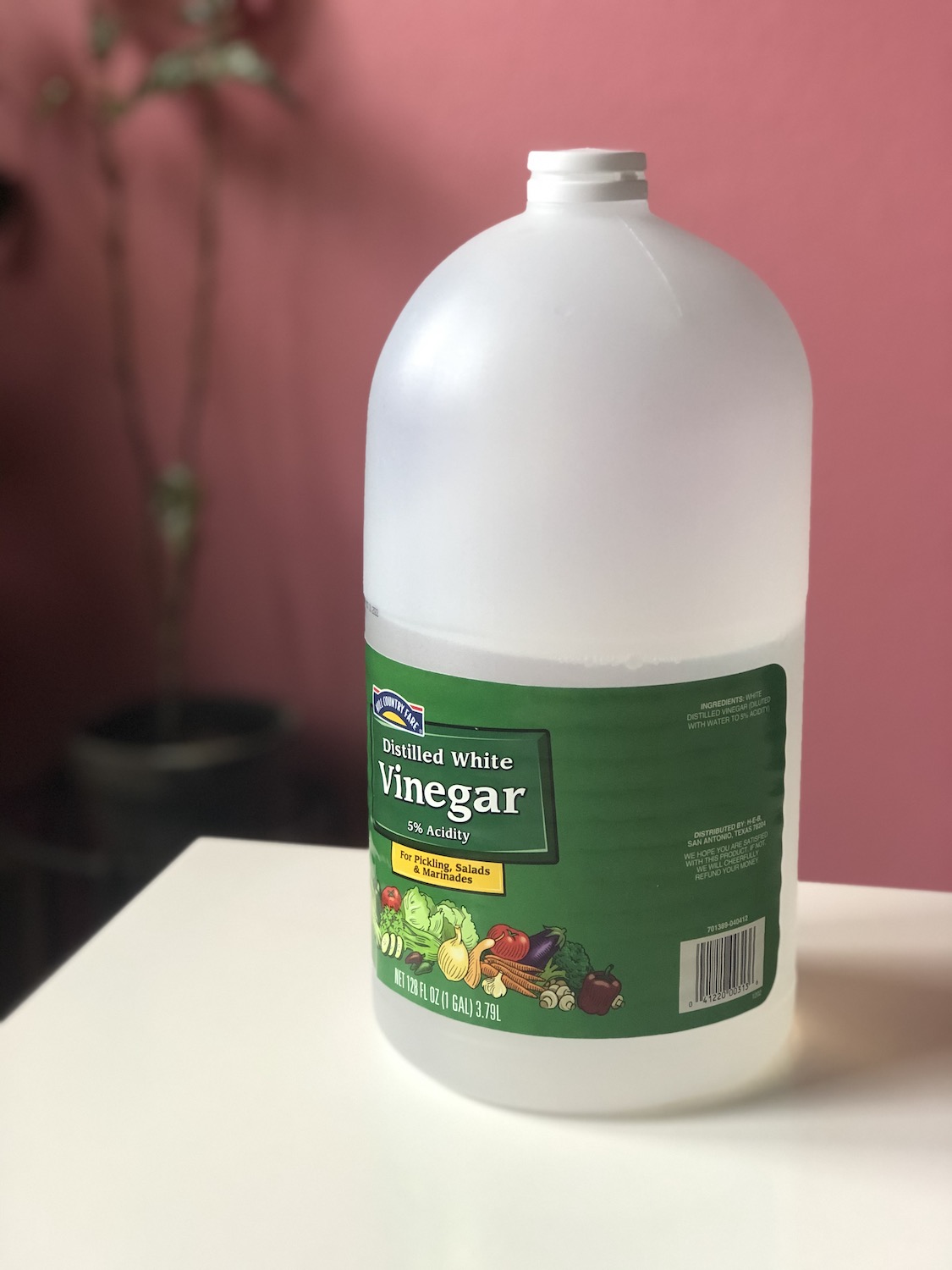
To make this simple cleaner feel special and pleasantly scented, I steep the vinegar with citrus peels. Citrus, specifically lemons and oranges, can be used in multiple ways around your home, usually as a helpful degreaser or scent freshener.
For this batch, I’ll be using fresh grapefruit peels, because they’re what I have on hand. You can also stockpile citrus in the freezer to use later! I freeze spent citrus nearly every time I use them. Just throw the peels or juiced halves into a container in your freezer until you need to make a new batch.
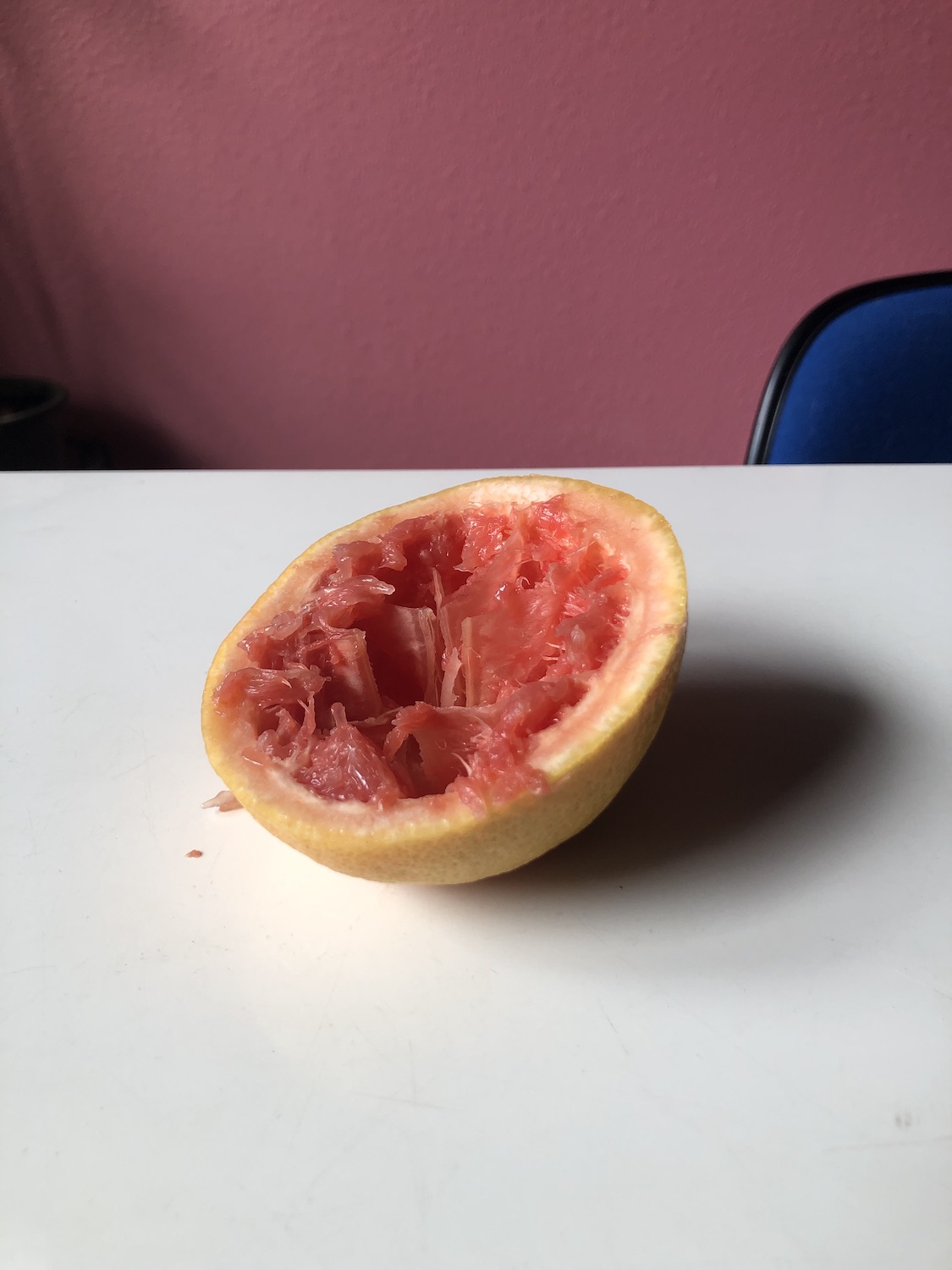
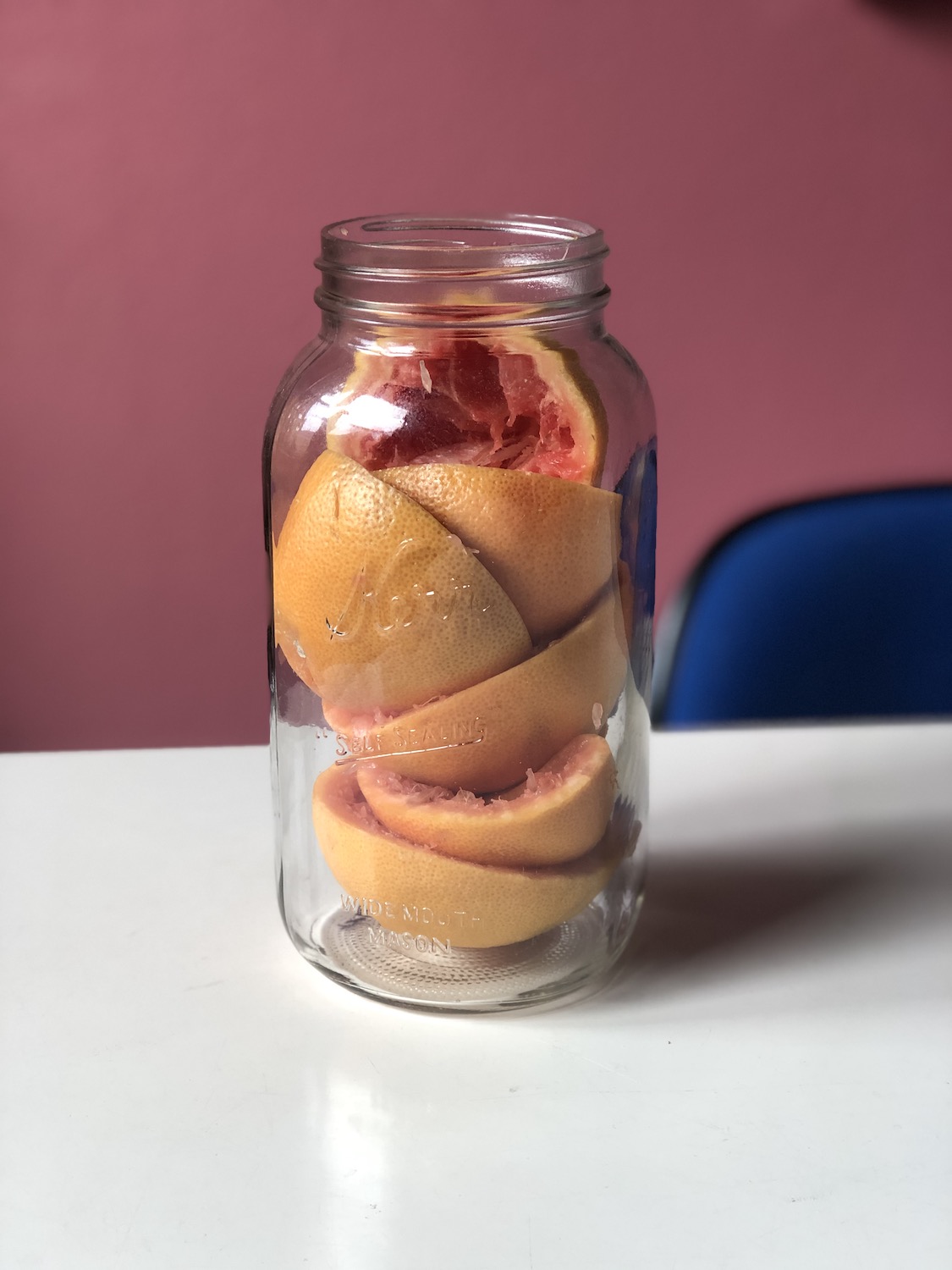
Place all the peels or halves into a jar. I’m making a couple of large batches as I tend to go through a lot in my house, but feel free to make a smaller jar’s worth if it’s your first time. There’s nothing to measure, so don’t worry about proportions.
You can really use any jar: old salsa or pasta sauce jars, leftover mason jars, or you can get a fresh new one like this nice swing-top in multiple sizes or snag some jars in bulk for other uses.
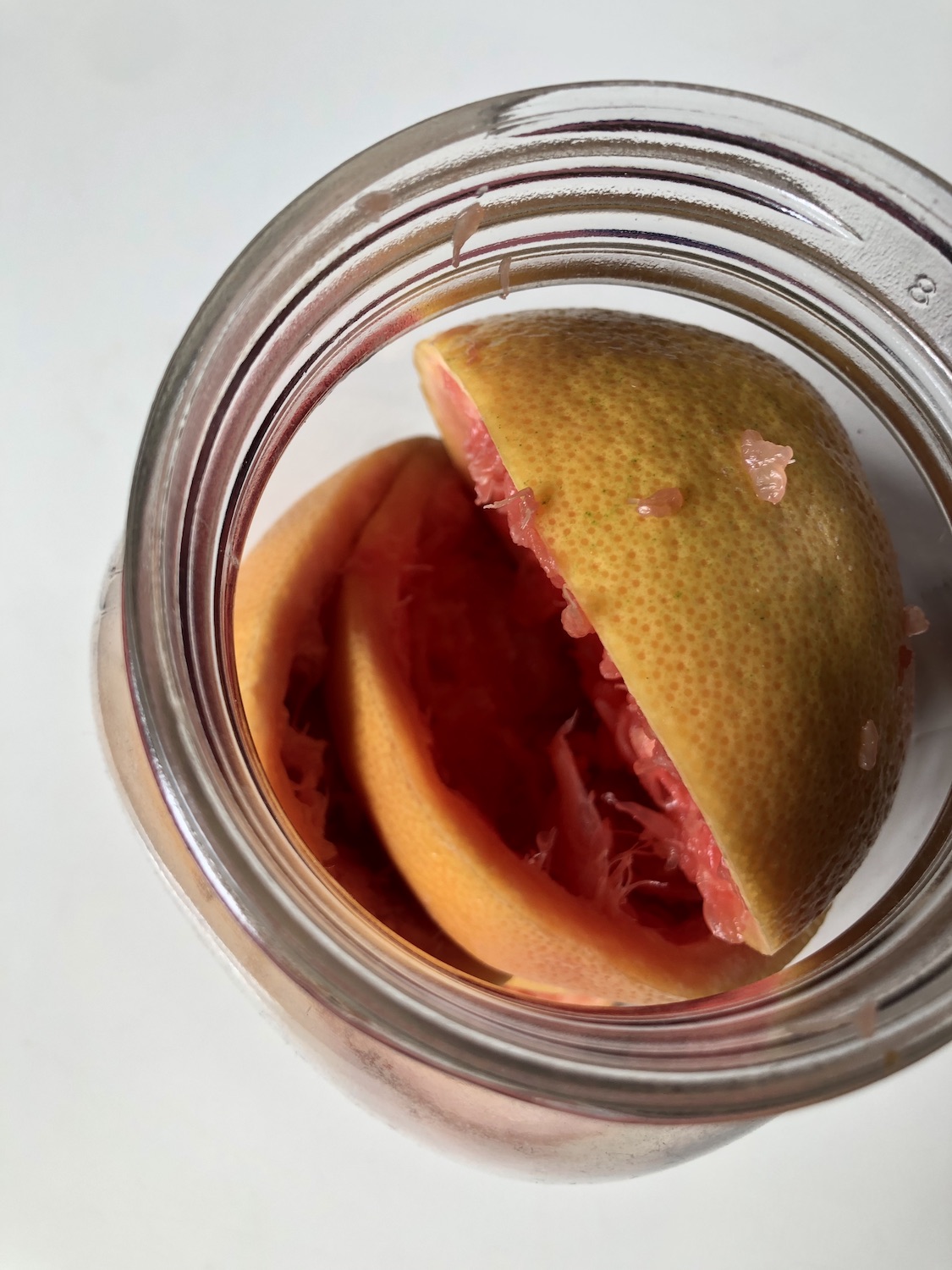
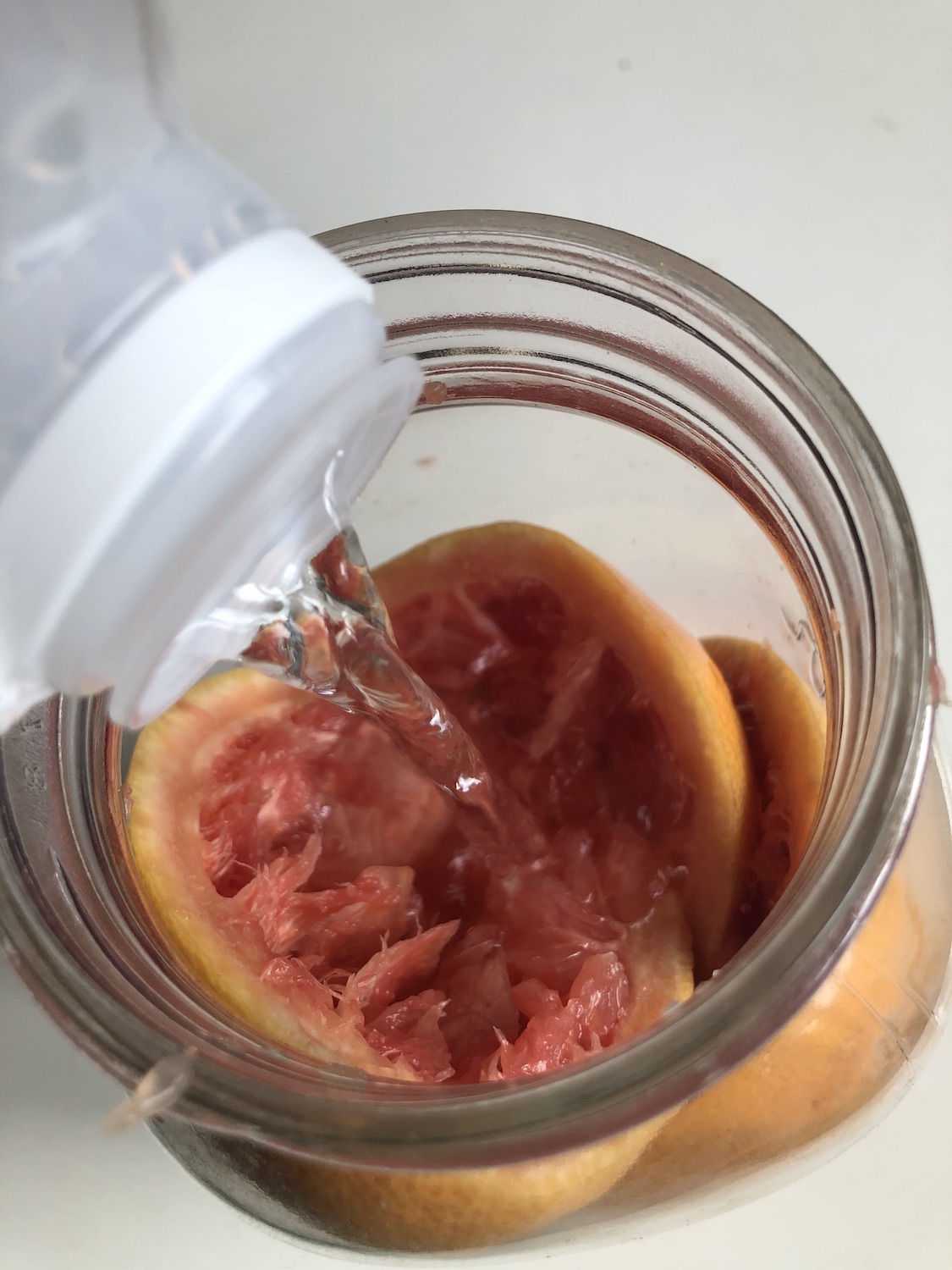
Fill the jar with white vinegar leaving some space at the top, cap it off, and store it in a cool, dry place for about two weeks. Ample time to extract a slight citrusy scent! I like to leave space at the top of the jar—especially if the lid is metal—so the vinegar doesn’t as quickly rust or oxidize the cap. This is also why I use glass jars! Plastic and metal are not appropriate candidates for this as vinegar can be corrosive over time.
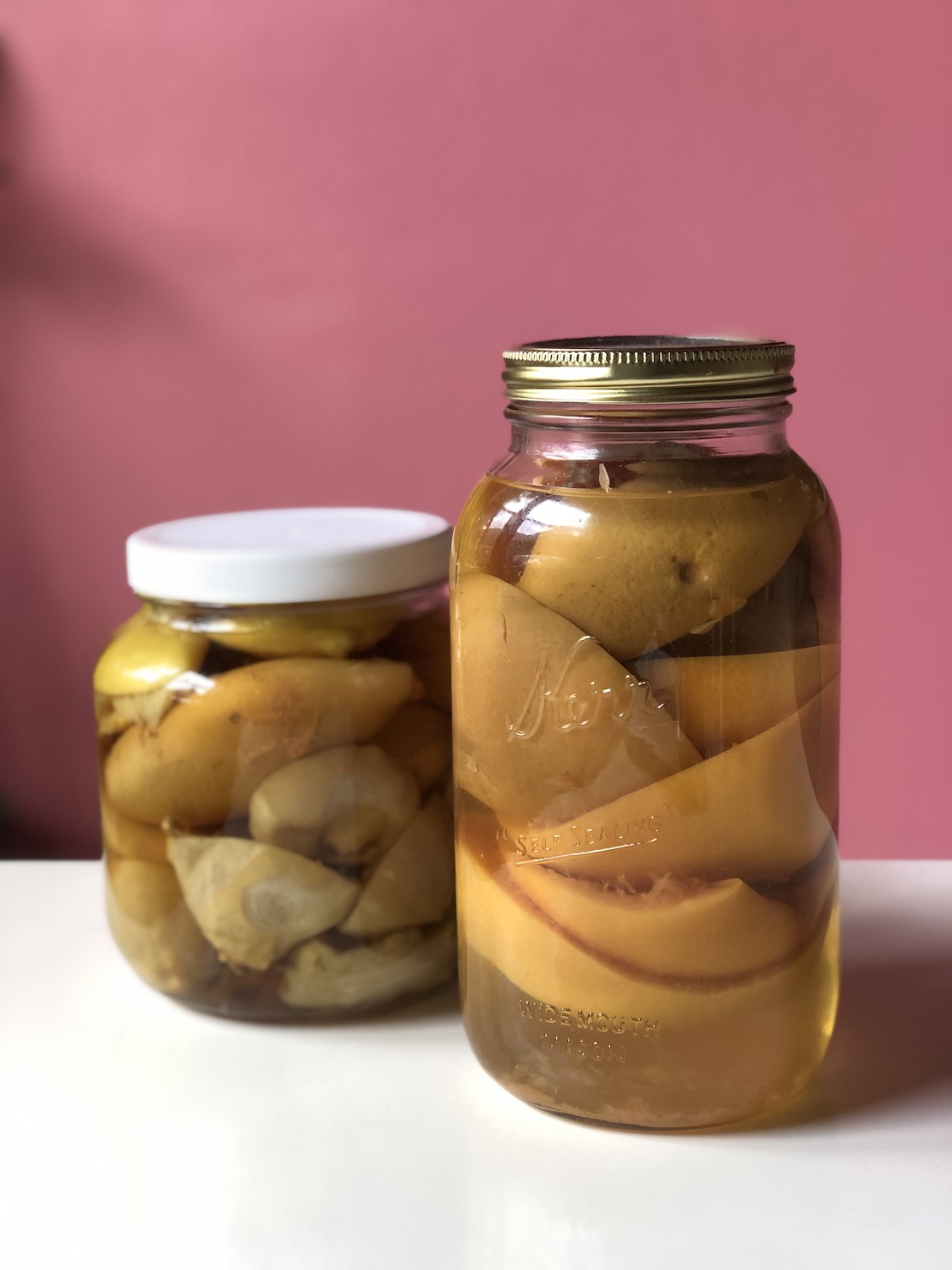
Here, I’m making two batches: one with the fresh grapefruit peels, and another with frozen citrus (lemon, orange, and lime peels) from my freezer. Once filled, I store these on the top shelf of my pantry where they’re out of the way.
Feel free to steep the vinegar with herbs like fresh rosemary or dried lavender!
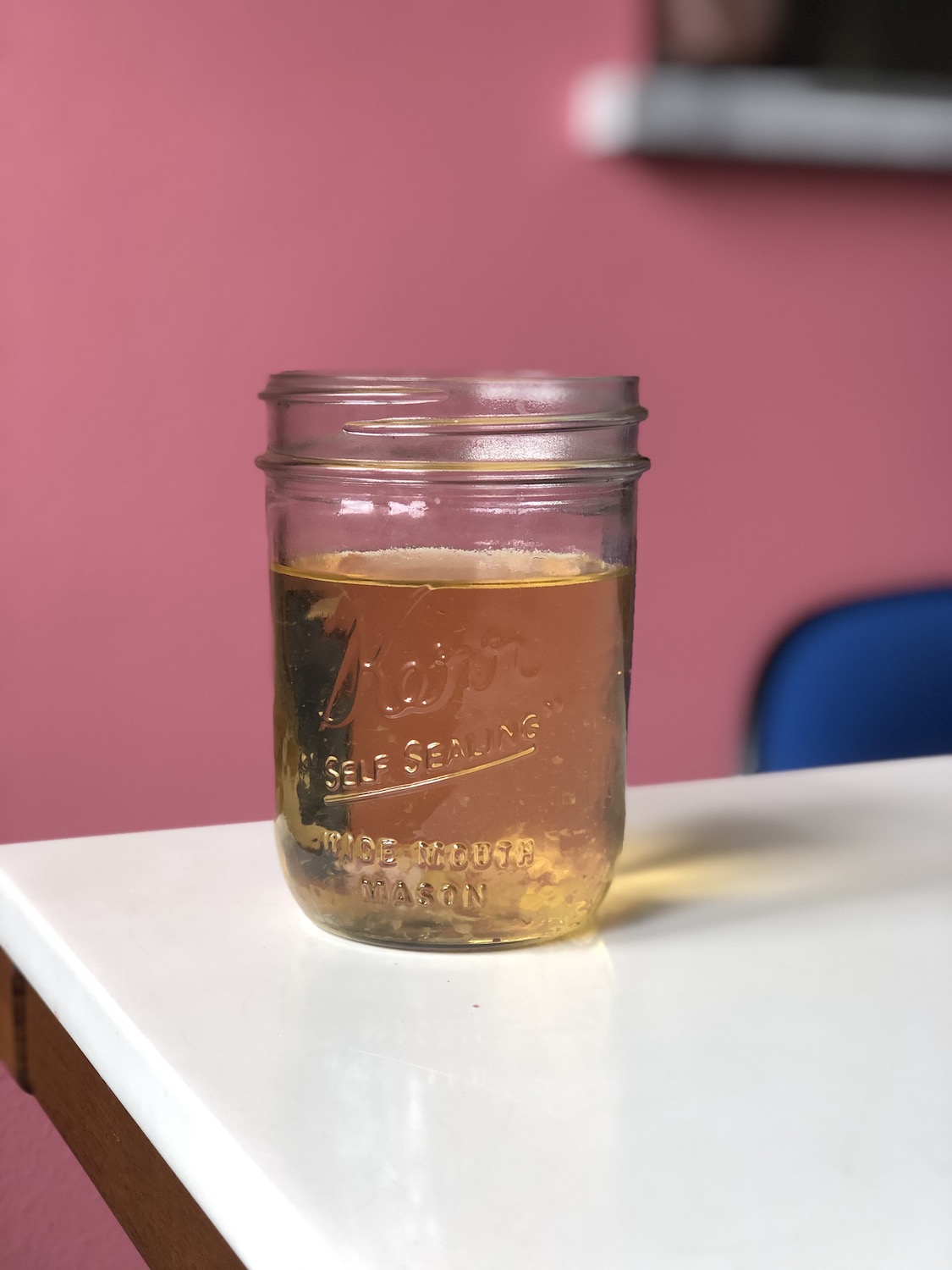 Once a couple of weeks have passed, your new citrus vinegar should look like this: a lovely golden yellow hue. From here, you can use the concentrate as is, or add in a few drops of your favorite essential oils—I like to add eucalyptus, lemongrass, or cedar sage.
Once a couple of weeks have passed, your new citrus vinegar should look like this: a lovely golden yellow hue. From here, you can use the concentrate as is, or add in a few drops of your favorite essential oils—I like to add eucalyptus, lemongrass, or cedar sage.
After straining out the peels are strained you can use them in a couple of different ways: compost them, if that’s your thing, or I use a couple to scrub out my sink (or other drains) and garbage disposal with baking soda. Gotta love a multi-purpose tool, or fruit!
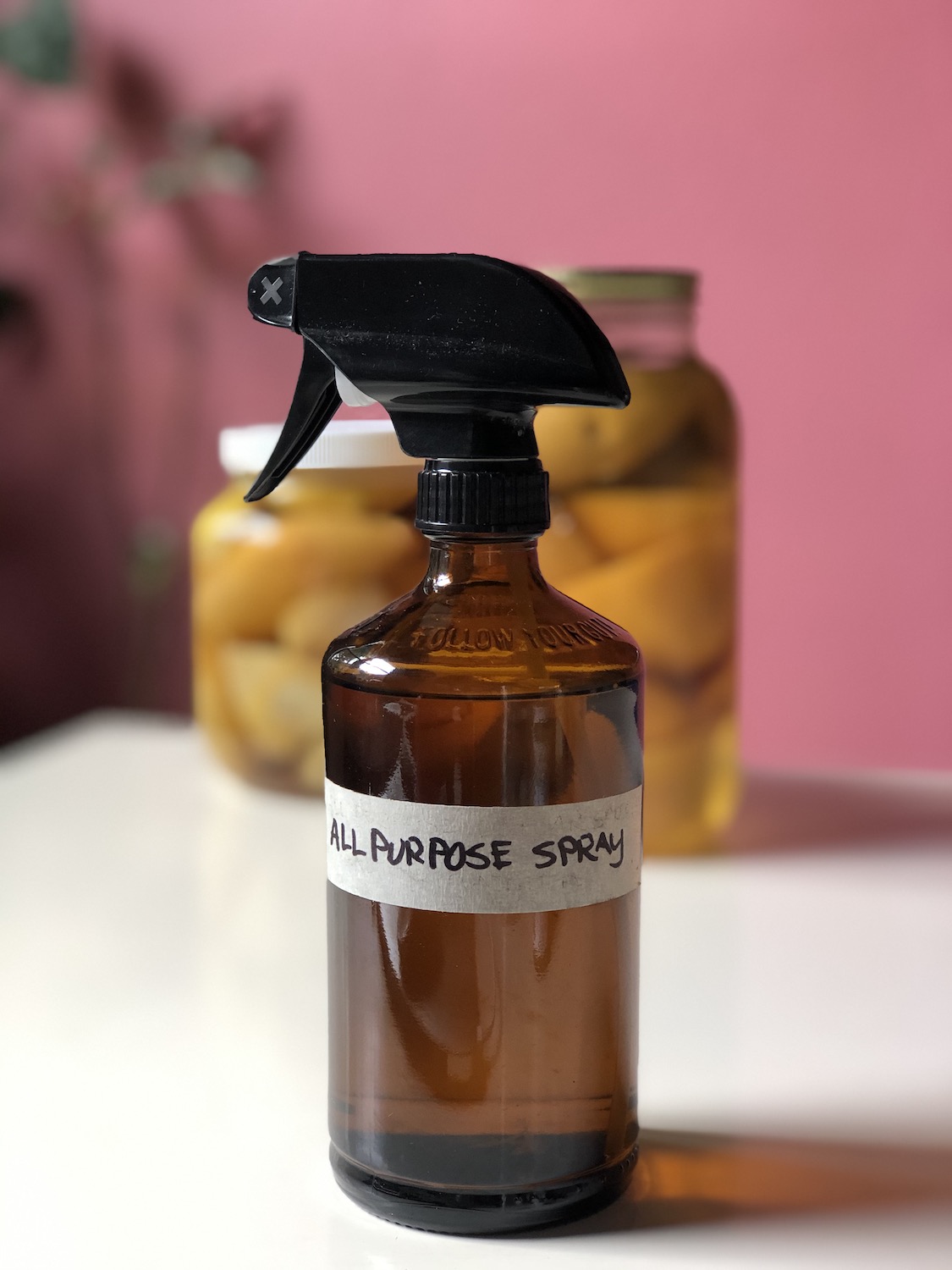
To use the vinegar as a cleaner, I cut the concentrate vinegar with equal parts water. You can store the vinegar in this ratio or add water once you’re ready to use. Pour the diluted vinegar into a spray bottle–here I’m using a repurposed kombucha bottle and a new spray head—slap a label on it, and use it as you wish!
I use vinegar to clean just about everything: floors, mirrors, my bathroom fixtures and shower, glass, stains on carpets and clothes, and for daily or weekly surface cleaning. However, don’t use vinegar for for cleaning natural stone, like marble countertops, as its acidic properties can corrode the stone.
Worried about the scent of vinegar? Don’t be—it doesn’t linger long and even helps eliminate less than pleasant odors. Use it anywhere in your home that needs a quick sprucing up!
*Disclaimer: While vinegar is a useful all purpose cleaner, it is not a CDC approved disinfectant. Therefore is not useful at killing the novel Coronavirus and should not be use in place of approved disinfectants.
Let’s Be Friends!
Insta | Pinterest | Enews | TikTok


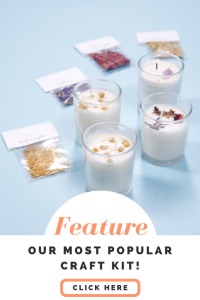
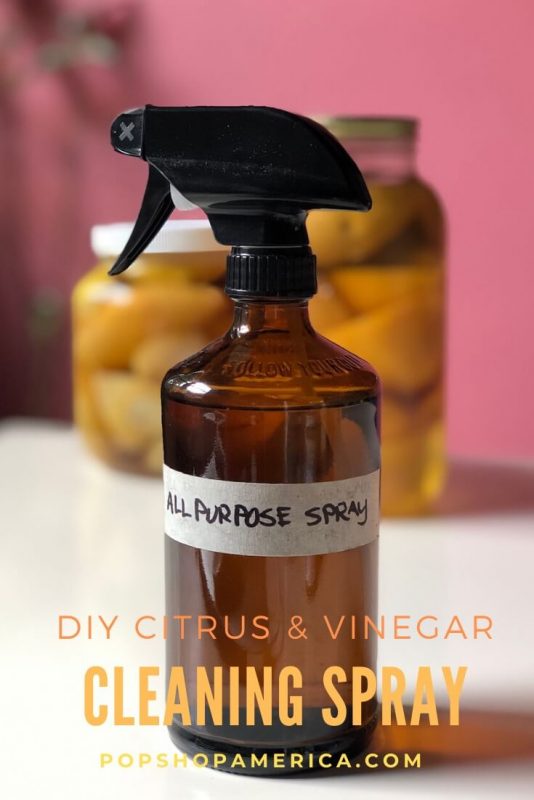
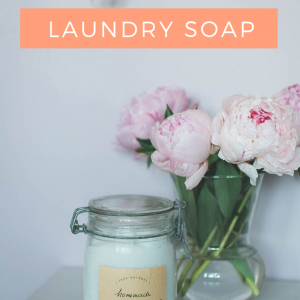
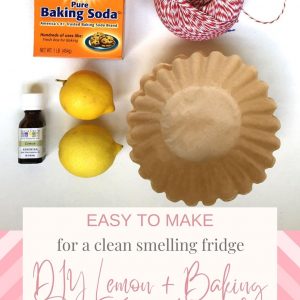
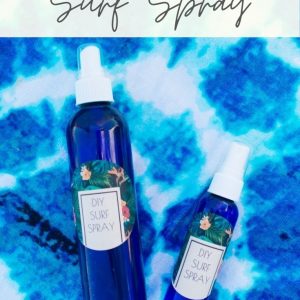
Brittany, when you put the finished product in a spray bottle, do you suggest not using plastic here too? Thank you for sharing this. I never knew about using citrus peel for other things and I love it when I can toss things in the freezer to use later.
Hi Penny! Great question. I feel like once the citrus peels are strained out, using a plastic bottle—I’m presuming a leftover cleaning bottle?—is probably fine! Those plastics are a different grade so as to not break down from the contained cleaning products. I just use a leftover Health-Ade kombucha bottle because they’re just the right size for the spray head, and I think they look nice. Thanks for asking, and let us know how it works if you end up making any!